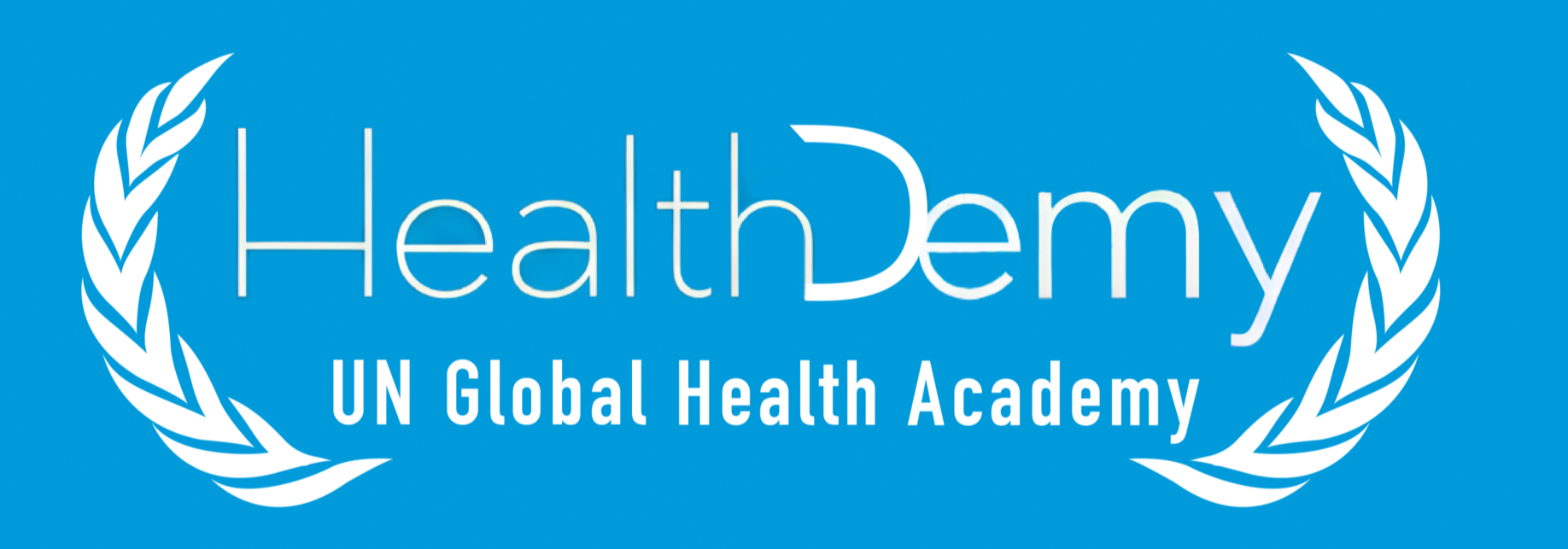Empowering Healthcare Professionals: Addressing Mental Health and Burnout through Training and Collaboration
Mar 13
/
Michael Adhanom
Image source: Graphic generated using ChatGPT.
Mental health has become a growing concern in the healthcare community, and for good reason. Healthcare professionals are the backbone of our medical systems, yet many face relentless stress, emotional exhaustion, and burnout.
The United Nations Institute for Training and Research (UNITAR)’s Division on Non-Communicable Diseases, Digital Health, and Capacity Building recently held focus group discussions with frontline healthcare workers from different regions. These conversations provided eye-opening insights into the mental health challenges they face and how training, collaboration, and institutional support can make a real difference.
The Everyday Struggles of Healthcare Workers
Long shifts, high-stakes decisions, and emotionally charged situations are part of the daily reality for many healthcare professionals. Whether they’re working in underfunded hospitals, emergency care units, or conflict zones, the toll on their mental well-being is unquestionable. Here is a short recap of valuable insights from our discussions.
A clinical assistant from Zambia described how working in an understaffed hospital means their role extends far beyond medical care; they also act as translators and provide emotional support to patients from rural communities. Despite their deep commitment, the emotional weight of the job often leaves them drained. Instead of one-size-fits-all mental health strategies, they highlighted the value of culturally relevant approaches, like music therapy and silent group activities, that resonate more than traditional meditation practices.
In the Maldives, an emergency care professional spoke about the overwhelming pressure of managing multiple critical tasks simultaneously. With little time for structured mental health support, they suggested that flexible, accessible resources like podcasts with practical mental health strategies could be a game-changer. They also emphasized the need for mindfulness techniques tailored to local cultural traditions to increase engagement and effectiveness.
For a military doctor from Togo, the challenges are even more intense. Working in conflict zones means constant exposure to trauma, both personal and professional. Their biggest takeaway? Mental health preparedness should be embedded in medical training, equipping healthcare workers with psychological first-aid skills to protect themselves and their patients.
Creating a Culture of Mental Well-Being
These discussions clarified several things:

Image source: Graphic generated using ChatGPT.
Firstly, healthcare institutions must move beyond just acknowledging burnout and take real action. A recent WHO article emphasizes that persistent stress, burnout, absenteeism, and strikes among healthcare workers reflect deeper systemic issues within health systems. These challenges arise from workforce shortages, insufficient wages, unsafe and demanding working conditions, and the absence of essential workplace protections. Between January 2020 and April 2022, at least one in four healthcare workers experienced symptoms of anxiety, depression, or burnout, with no significant decline reported since then (WHO, 2024).
Secondly, training programs need to go beyond generic stress management advice. They should focus on resilience-building, trauma-informed care, and strategies designed specifically for healthcare environments. Hospitals and clinics should foster supportive peer networks, promote self-care strategies, and provide access to professional mental health services without stigma. Research has shown the benefits of peer support programs in healthcare settings. These programs offer informational and psychosocial support, reduce social isolation, and connect patients and caregivers with others who have similar experiences. For healthcare professionals, peer support can effectively manage stress and prevent burnout (Joo et al., 2022).
Finally, training alone isn’t enough. Workplace policies must also change. Simple but meaningful adjustments like integrating wellness initiatives into daily routines can help prevent burnout before it takes hold. Healthcare professionals in our focus groups stressed the importance of leadership commitment, ensuring that mental health is prioritised, not just an afterthought.
A meta-analysis published by The Lancet emphasizes that training alone cannot be enough. The research consistently showed that organizational interventions are crucial in reducing burnout and workforce turnover. Strategies such as optimizing staffing levels, strengthening leadership support, and providing accessible mental health resources have been linked to lower burnout rates and greater job satisfaction. Furthermore, it indicates that implementing leadership development programs and peer support initiatives can lead to a 30–50% decrease in burnout among healthcare professionals (West et al. 2016).
The Road Ahead: Collaboration and Action for Competency-Based Mental Health Training
Partnerships between healthcare institutions, universities, and policymakers are essential to building lasting solutions. Advocacy efforts should also focus on making mental health training widely accessible, especially in low-resource settings where professional psychological support is scarce.
Future focus groups should also refine mental health training programs to make them more practical and inclusive. These training modules will incorporate real-world case studies and scenario-based learning to keep them relevant and engaging. A blended approach of combining in-person workshops with digital platforms would help ensure accessibility for professionals with demanding schedules.
Competency-based mental health training offers a flexible and cost-effective approach to addressing the mental health workforce challenges in low- and middle-income countries (LMICs). Traditional, professional school-based training models often emphasize theoretical knowledge over practical skills and remain profession-specific, reinforcing segregation between health disciplines. This approach has proven inadequate in meeting the population’s mental health needs, especially in resource-limited settings where a shortage of mental health professionals persists (Frenk et al., 2010).
A Call to Action
Mental health is not just a personal issue; it’s a healthcare system and sustainability issue. The stories shared in these discussions reveal an urgent need for practical, culturally inclusive, and adaptable mental health solutions. Through hands-on, competency-based learning, workplace support, and collaboration, we can foster a stronger, more resilient healthcare workforce, one that thrives rather than merely survives (Shreffler et al., 2022).
Interested in collaborating with UNITAR to design the course on Mental Well-Being for Healthcare Professionals? Write to us at globalhealth@unitar.org.
Interested in collaborating with UNITAR to design the course on Mental Well-Being for Healthcare Professionals? Write to us at globalhealth@unitar.org.
References
- Frenk, J., Chen, L., Bhutta, Z. A., Cohen, J., Crisp, N., Evans, T., ... & Zurayk, H. (2010). Health professionals for a new century: Transforming education to strengthen health systems in an interdependent world. The Lancet, 376(9756), 1923-1958. https://pmc.ncbi.nlm.nih.gov/articles/PMC1414772/
- Joo, J. H., Bone, L., Forte, J., et al. (2022). The benefits and challenges of established peer support programmes for patients, informal caregivers, and healthcare providers. Family Practice, 39(5), 903–912. https://doi.org/10.1093/fampra/cmac004
- Shreffler, J., Petrey, J., Huecker, M., & House, H. (2022). Physician burnout: A guide to identification and prevention. StatPearls Publishing. Retrieved from https://pubmed.ncbi.nlm.nih.gov/35900123/
- West, C. P., Dyrbye, L. N., Erwin, P. J., & Shanafelt, T. D. (2016). Interventions to prevent and reduce physician burnout: A systematic review and meta-analysis. The Lancet, 388(10057), 2272–2281.
- World Health Organization. (2024, April 25). Protecting the mental health of health and care workers: Urgent policy action needed. Retrieved from https://www.who.int/news/item/25-04-2024-202404_protecthw_mentalhealth
Copyright: © 2024 The Defeat-NCD Partnership. All rights reserved.
